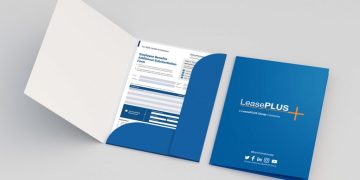Embarking on a career change can be an exciting but daunting endeavor. Whether you’re looking for greater fulfillment, a better work-life balance, or new challenges, proper preparation is essential to ensure a successful transition. Changing careers requires careful planning, self-reflection, and strategic steps. Let’s explore key strategies to help you prepare for a career change.
Self-Reflection and Assessment
Before diving into a career change, take the time for self-reflection and assessment. Evaluate your skills, strengths, and interests. Consider what truly motivates and excites you. Reflect on your values and what you want to achieve in your professional life. This introspective process will help you identify potential career paths that align with your passions and goals.
Additionally, assess your transferable skills. Identify the skills you’ve acquired throughout your current career that can be applied to your desired field. Transferable skills, such as leadership, communication, problem-solving, and project management, can be valuable assets in a new career.
Research and Exploration
Once you have a sense of the direction you want to take, conduct thorough research and exploration of your desired field. Learn about the industry trends, job market, and the skills and qualifications required for the roles you’re interested in. This research will help you gain insights into the industry’s demands, salary expectations, and potential growth opportunities.
Network with professionals already working in your desired field. Attend industry events, join relevant professional associations, and engage with online communities. This will provide you with valuable information, connections, and firsthand experiences that can guide your career change journey.
Build and Leverage Your Network
Networking is crucial when making a career change. Reach out to your existing network, including colleagues, friends, and acquaintances, and let them know about your career aspirations. They may be able to provide advice, referrals, or even job leads. Additionally, expand your network by attending industry events, joining professional groups, and connecting with professionals on platforms like LinkedIn.
Develop New Skills
Depending on the requirements of your desired career, you may need to acquire new skills or enhance existing ones. For example, you could start working in the dental field by attending dental hygiene programs in Arizona. Look for opportunities to develop your skills through online courses, workshops, volunteer work, or part-time positions. Consider taking on projects or freelance work that aligns with your desired career to gain practical experience and build your portfolio.
Create a Financial Plan
A career change often comes with financial implications. Assess your financial situation and create a plan to ensure a smooth transition. Consider factors such as the potential impact on your income, expenses, and savings. It may be necessary to adjust your budget or explore alternative income sources during the transition period. A financial plan will provide you with a clear understanding of your financial needs and help you make informed decisions about your career change.
Set Realistic Expectations and Embrace the Learning Curve
A career change is a journey that takes time and effort. Set realistic expectations for yourself and acknowledge that there may be challenges along the way. Understand that you may need to start at a more entry-level position or take a temporary pay cut as you gain experience and establish yourself in your new field. Embrace the learning curve and be open to continuous growth and development.
Create a Transition Strategy
Plan your career transition strategically. Consider whether it’s possible to make a gradual transition by taking on part-time or freelance work in your new field while maintaining your current job. This approach allows you to gain experience, build your network, and test the waters before fully committing to the career change.
Alternatively, if circumstances allow, you may choose to make a clean break from your current career and dedicate yourself entirely to your new path. Assess your personal circumstances, financial situation, and risk tolerance to determine the best approach for you.
In conclusion, preparing for a career change requires careful self-reflection, research, networking, skill development, financial planning, and strategic thinking. By taking these steps, you can confidently navigate the transition and embark on a fulfilling new career path. Remember that a career change is a journey, and with perseverance, dedication, and a proactive mindset, you can successfully make the leap to a career that aligns with your passions and aspirations.




















